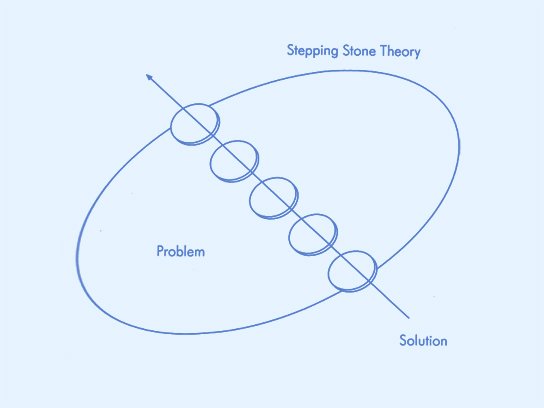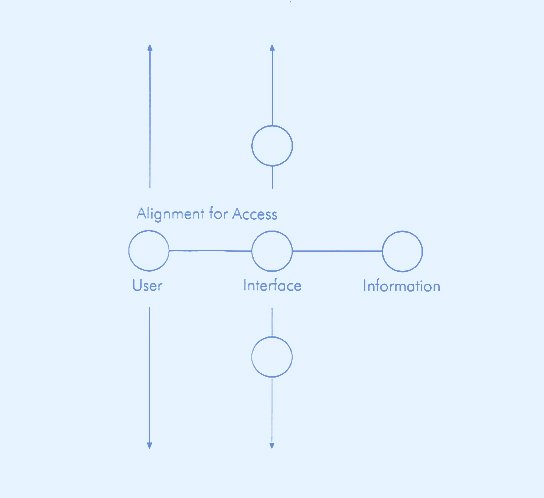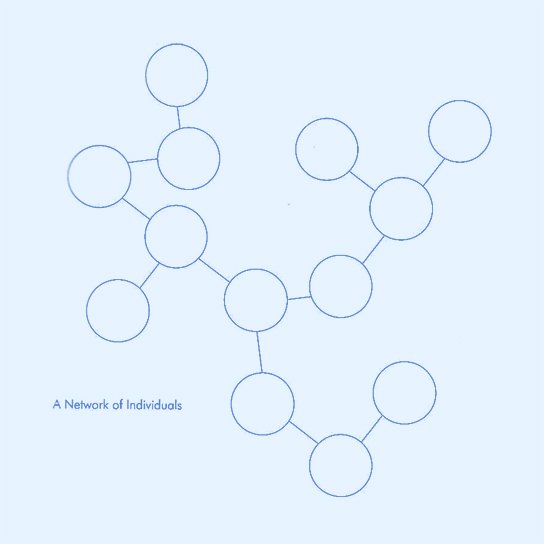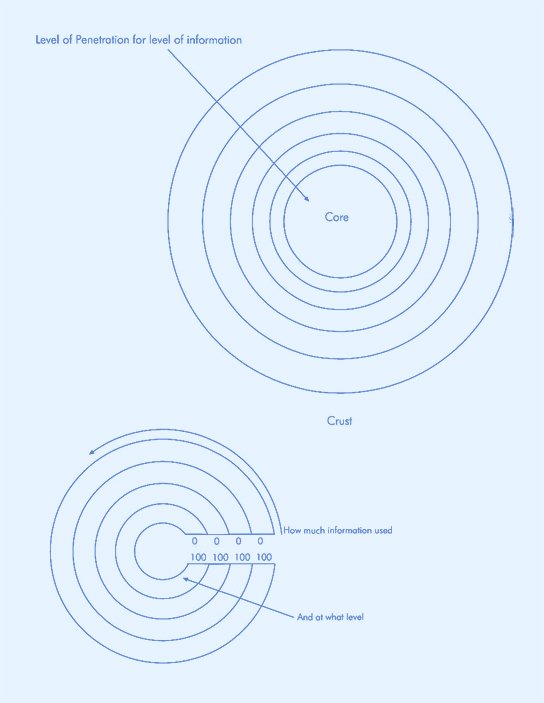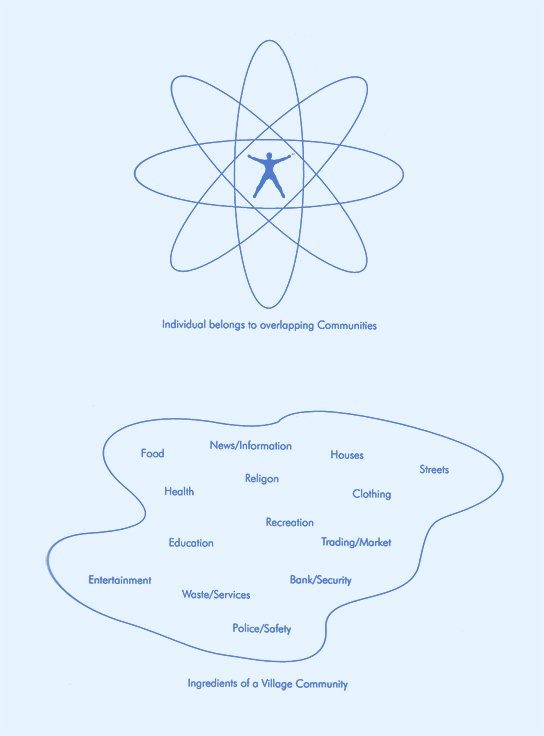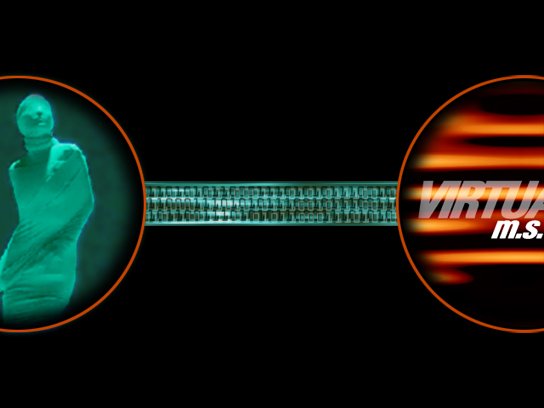CHALLENGE
Multiple sclerosis (MS) poses significant challenges for those affected, especially in maintaining social connections and forming community ties. Many MS sufferers face physical and financial barriers, making it difficult to participate in traditional communities and access support networks. This project aimed to explore how technology could create a virtual community for MS individuals, providing a sense of belonging and shared experience despite their physical limitations.
INSIGHT
Community is more than proximity; it’s a space of shared experiences, values, and support. MS patients, particularly those who are homebound, often feel isolated. However, technology offers the potential to create 'virtual' spaces where MS individuals can connect, communicate, and support each other from the comfort of their own homes. By leveraging adaptive technology, the virtual community could also address different stages of MS progression, allowing for more inclusive participation.
SOLUTION
We proposed a virtual community centre tailored to the needs of MS individuals, accessible through adapted television sets with touch-screen capabilities. This system would facilitate real-time communication, counselling services, group discussions, and access to trusted information; all managed through a central organisation like the MS Society. The platform would offer flexibility, enabling one-on-one, one-to-many, and many-to-many interactions, promoting a secure, inclusive space for MS patients to form meaningful connections and access essential support from home.
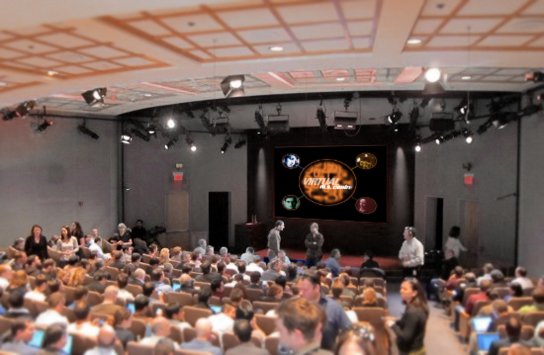

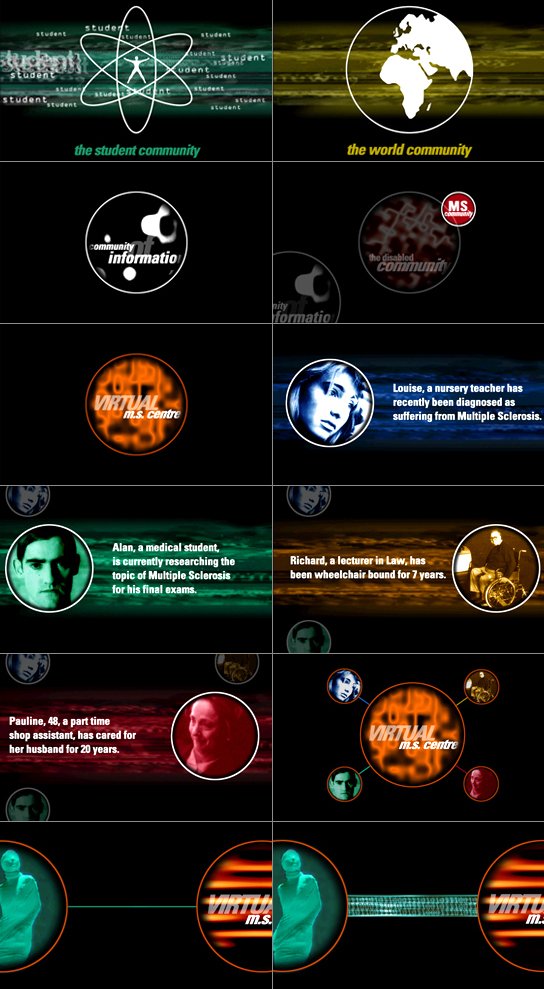
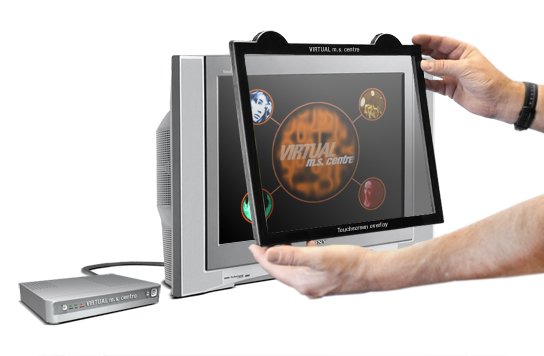
Tuesday, July 23, 1996
9 AM Town Hall Auditorium
Apple Computer, Inc.
1 Infinite Loop, Cupertino, CA 95014-2084
University of Westminster Project Submission
Multiple Sclerosis and the Virtual Community: A Virtual Centre for the Physically Challenged
Student Team:
Paul Fennel, Stuart Wilson, Adam Kenny
Faculty Advisor:
Roman Buj
Apple Liaison:
Sally Grisedale, Harry Sadler, Eileen Genevro
This project addresses the unique needs of the multiple sclerosis (MS) community. Our research revealed a strong desire for better communication and connection among MS individuals. We propose a virtual community center, utilizing existing television sets with touch-screen technology, to foster interaction. Our extended presentation will explore key topics like community, individual needs, and the technology required.
Apple Design Project Brief 1996
Humans inherently form communities for survival and social enrichment, transcending mere necessity. In our fast-paced world, "communities of interest" emerge, bringing people together through shared passions rather than physical proximity. This broad definition of community encompasses groups that, while diverse, engage collectively over time through shared histories and values.
University of Westminster Response
Our exploration began by recognizing how current technologies can hinder creativity, particularly for the physically challenged. Focusing on the MS community, we identified how technology can adapt to their unique challenges. MS can severely limit social interaction due to physical barriers and financial constraints.
Introduction
Multiple sclerosis is a debilitating disease that primarily affects young adults, with onset typically around age 17. Symptoms vary widely, including clumsiness and temporary numbness, leading to significant life changes and challenges.
Background
MS limits social engagement, often reducing interaction to phone calls. New technologies can enhance communication and create a virtual community for individuals with shared experiences.
Aims and Objectives
We aim to build a system that allows MS members to connect virtually. Managed by organizations like the MS Society, this "Virtual Community Centre" will offer counseling, forums, and opportunities for shared experiences, fostering real-world interactions through online engagements.
Issues and Requirements
MS individuals often face challenges like adapting their homes or cars. Utilizing existing technology, such as telephones and TVs, is vital for effective communication without overwhelming costs. Our interaction with David Pearse from the MS Society highlighted the importance of relatable facilitators in community building.
Adaptive Communication Technology
Accessible technology can empower individuals to engage fully in their communities. Often, newly diagnosed individuals lack guidance, making a supportive virtual MS community essential. Affordable touch-screen solutions can enhance communication, counteracting MS's impact.
Project Planning
Through research, we will develop technology catering to the varying stages of MS, focusing on enhancing communication through sound, vision, and gesture. Our goal is to create systems that adapt to individual needs and foster meaningful connections within the MS community.
